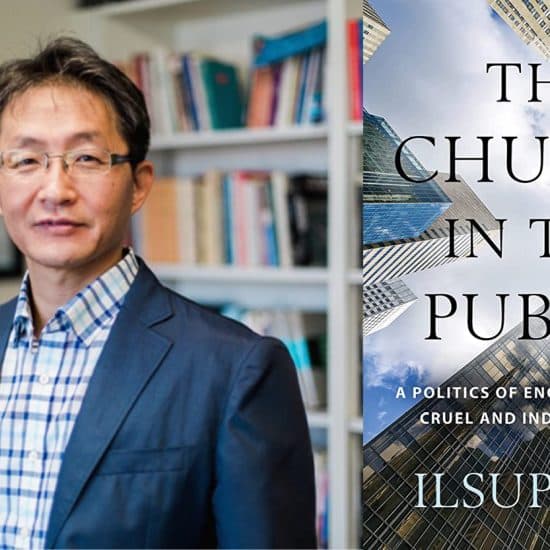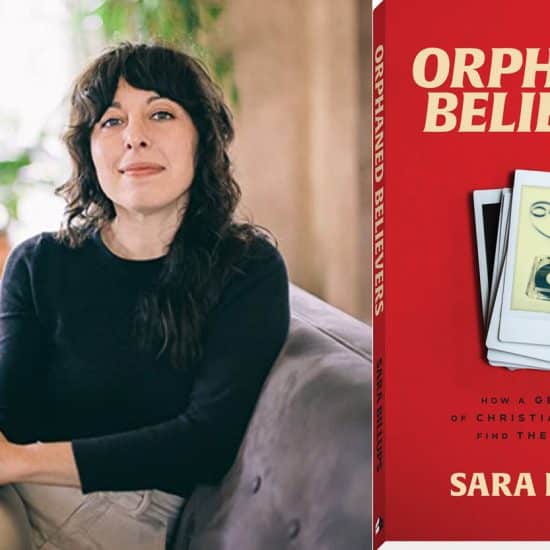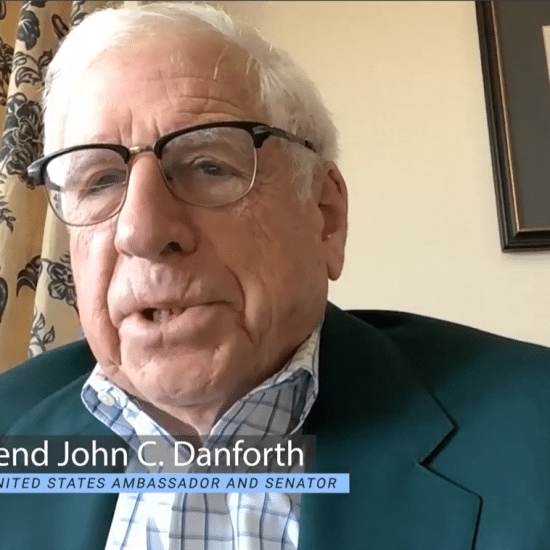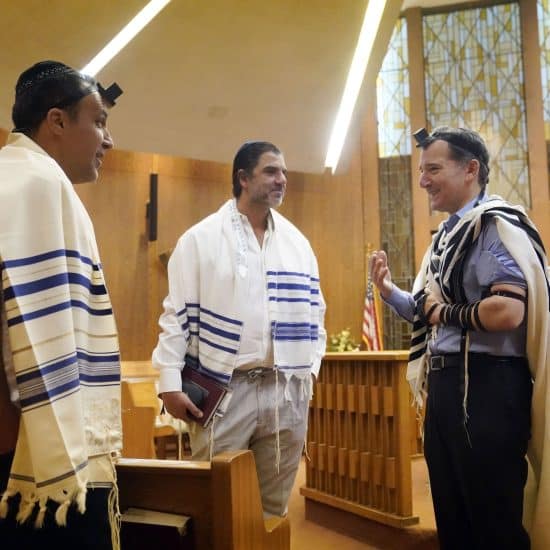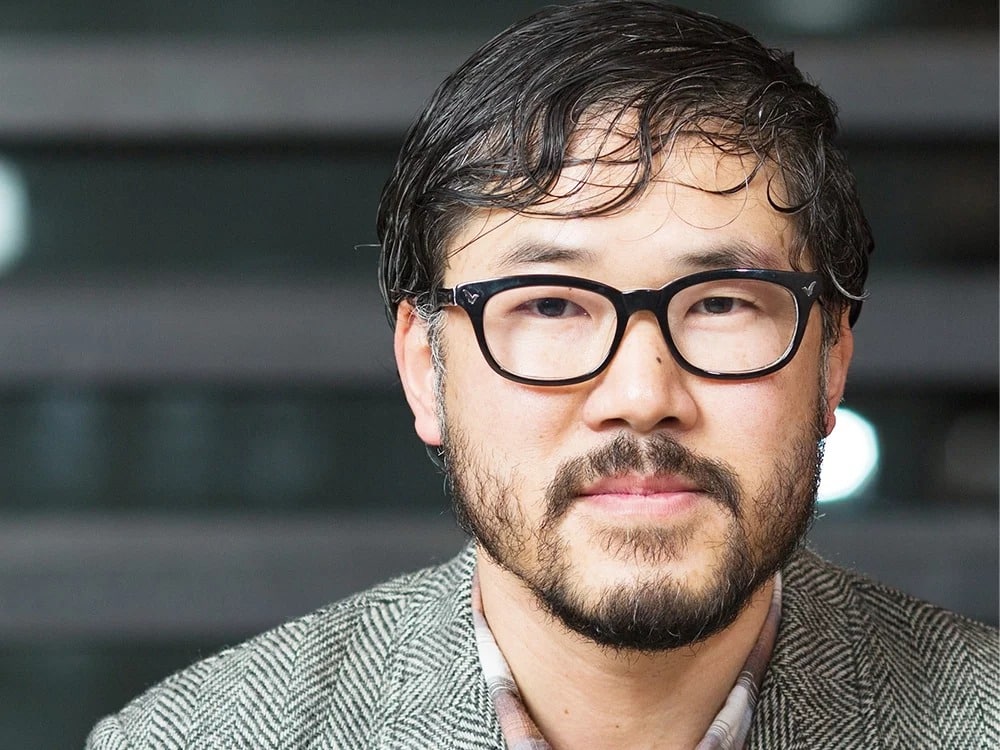
 (RNS) — The last thing Eugene Cho wanted to write a book about was politics.
(RNS) — The last thing Eugene Cho wanted to write a book about was politics.
In fact, Cho said he quit writing his latest book, “Thou Shalt Not Be A Jerk: A Christian’s Guide to Engaging Politics,” four times.
The pastor, author and founder of the nonprofit One Day’s Wages kept imagining the criticism he would receive. Nowadays, he noted, it seems like there is no “middle ground” in politics or anything else, “no nuance in how we’re navigating certain conversations.”
But he also kept feeling compelled — by the Holy Spirit, he said — to finish the book.
“There’s a lot of folks in the middle that are trying to bumble and stumble our way through,” he said. “We take our faith seriously, we know politics matters because it informs policy and that impacts people, and we’re just trying to figure that out as best as we can as followers of Jesus.”
“Thou Shalt Not Be A Jerk” was released ahead of Super Tuesday (March 3), when the largest number of states vote in primary elections and caucuses on one day.
In the run-up to November’s general election, Cho said, “I would say obviously this is an important election.”
He’s not naïve, he said. He believes God is sovereign. But he also believes that doesn’t preclude him from caring about what happens.
“God is sovereign and I choose to care and I believe that it matters,” he said.
“Politics and foreign policies impact real human people, and so, yes, it does matter. But, you know, I won’t go as far as to say it’s the most important and everything for all eternity is going to hinge upon this election.”
He also would never encourage Christians to vote reflexively with a single political party — either Republican or Democrat.
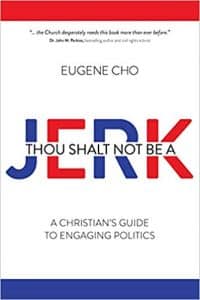 Cho talked to Religion News Service about the 10 commandments of engaging in politics in his book “Thou Shalt Not Be A Jerk” and about a better way for Christians to take on the subject in a contentious election year. This interview has been edited for length and clarity.
Cho talked to Religion News Service about the 10 commandments of engaging in politics in his book “Thou Shalt Not Be A Jerk” and about a better way for Christians to take on the subject in a contentious election year. This interview has been edited for length and clarity.
You write in the introduction to this book that you are “deeply concerned and, at times, deeply grieved by the state of political affairs in our society.” Why is that?
I wrote the book for three groups of people: There’s a group of folks that have altogether disengaged from politics for whatever reason, including some folks that believe politics isn’t really part of the responsibility of Christians in any form or fashion. I’m also writing this book for a group of folks that I feel like have made politics our idolatry of our time — that we’re so obsessed by it, it justifies everything we do because of our ideology. And then I think there’s another group of people that are kind of enamored by the power of politics, and rather than our theology informing our politics, it feels as if our politics informs our theology.
I think this is part of the reason why there are a lot of folks just wondering why and how are Christians acting in the way they are or choosing to say certain things during this political climate and season.
Your first commandment is “Thou shalt not go to bed with political parties.” What do you think is a better way for Christians to engage politics beyond voting for a particular political party?
I think it’s actually OK to identify with a political party. I think it’s OK to support a politician. I think it’s OK to donate to a campaign. I don’t think those things are bad. But I think there is a distinction when we’re so immersed in a particular party and its power that we’re unwilling to think objectively and to discern and realize that it’s just crazy to think a political party can monopolize or encapsulate the kingdom of God.
It’s a question I often get from folks that are just trying to navigate these waters: Are you a Republican or Democrat? That’s the question we often ask people. We want to box them in and identify them in this way. And my response to people is, “Well, what are we talking about? What is the topic we’re talking about?” Because it’s impossible, at least for me, to identify exclusively with only one political party.
And I think that’s what I mean: When we go to bed with a particular political party, if we’re not careful, we end up being more tribal, and we’re unwilling to challenge our own party or sentiments or views. One of the things I write about in the book is my concern that our politics is shaping our theology rather than our theology shaping our politics.
Why is it important for Christians to bring their faith into their politics?
The word politics has kind of a negative connotation for some, and I think what we have to understand is that politics is just a natural process of governance of any healthy society. And, as Christians, we’re called to love God and love people. When we read the Sermon on the Mount, when we read the Beatitudes, it gives us an ethic of how we’re to live our lives, including how we interact with other people, as well.
So the reason why politics matters is because it informs policies which ultimately impact people. And the last time you and I checked out the Bible, God cares about people, including those who are forgotten or marginalized or vulnerable. So, yes, I think it really matters.
I hear a lot of pastors also push back at me and say, “Christians — and pastors especially — shouldn’t discuss politics at all.” But if we’re not discipling our church folks, if we’re not having these conversations, the reality is they’re being discipled by other things, other people, other sources, other cable news, other pundits. And that’s, I think, part of the reason why we’re in this conundrum.
There are a lot of calls for more civility in politics. Then there are others who argue civility misses the point. How do you reconcile those two things?
That’s a great question, and it’s a great tension, and we have to acknowledge that tension. I write about civility and empathy in the book, and when I’m talking about these things, it’s not license for us to be soft. It’s not license for us not to pursue justice convictions.
I actually believe you can do both and they’re not competitors to each other. I actually believe for us Christians, it’s OK and good to have fierce convictions. But even as we pursue these things, it doesn’t give us a license to dehumanize other people — to vilify those that disagree with us. I think you could hold these two things in tension and pursue them simultaneously.
I think in addition to being civil, we have to realize we’re called to grow in empathy. There’s something about trying to better understand other people, even those we disagree with. The Bible teaches some really difficult things about loving our neighbors, for example. I think so much of Jesus’ command to love our neighbors, he strategically and intentionally places people that were outside our — at that time — construct of what it meant to be a neighbor. And so today what I would tell people is to love our neighbors means we’re called to love not just those that look like us, think like us, feel like us, even worship like us — and, let’s be honest, to love even those that don’t vote like us, as well. Those are really hard challenges.
Another one of your commandments is “Thou shalt not lie, get played, or be manipulated.” How do you think Christians get played when it comes to politics?
I’m not trying to vilify journalists, by any means, but I think the challenge is we’re not just receiving news, but much of our cable news and print news is news with commentary, right?
All of us bring our biases, our bent, our particular angle on things. And so we have to acknowledge that. Sometimes I think there are people who have the best of intentions doing it. But then, I think we can also acknowledge that there are sources that are not well intentioned, that are seeking to distort and deceive people.
Even as individuals — we have access to our own tools with Twitter and Facebook and various social media — I think we have to have a level of responsibility for what we consume, how we consume, and what we’re choosing to also participate in through our sharing of news, as well.
Right now, you’re preaching once a month at Willow Creek Community Church. It seems like maybe you’re doing something similar there, trying to bridge divisions and bring healing. What can you tell us about the church, what kind of leader it needs and how its congregation can heal?
It’s been a burden and a privilege to serve Willow. I’m not on staff. I’m still a guest preacher.
But it is kind of a fascinating story because about a year and a half ago, I did something I’ve never done before with Willow — I canceled an engagement. I hated to do it, but it was right when the news (about former senior pastor Bill Hybels’ alleged misconduct with women) broke out. And when I observed the family meetings (where Willow Creek leadership initially defended Hybels, who denied the allegations), I realized I just couldn’t honor my engagement there. I was supposed to speak about women’s empowerment, and I just realized I couldn’t do it. They were very understanding, but I thought I had indirectly burned that bridge.
So I was surprised a couple months later when the new interim senior pastor Steve Gillen called and asked if I would be willing to help out their church during this difficult season. By coming and speaking once a month, it would give them a little more space to care for the staff, to care for the congregation. And my wife and I discussed it, prayed about it and said yes, because we want to see churches heal, we want churches to speak truth, we want churches to confess, we want churches to receive forgiveness. Those are the things we wanted to see take place at Willow.
Now it’s been a challenging season for them, and there’s still a lot of hurt, a lot of pain. There was some more difficult news that came out a couple of weeks ago about one of the co-founders of Willow (Hybels’ mentor Gilbert Bilezikian, who also denies allegations he acted inappropriately in the past with a female member of the church). I was really heartbroken about that.
But one of the things I was really encouraged by is that the elders, or at least some of the representatives of the elder board, came out on a Sunday morning and shared that news and apologized. I think that’s so important because many of the meetings prior were always midweek or family meetings, and when we’re talking about reconciliation, we have to talk about the hard process of truth telling and confession and forgiveness, and we have to do it in the most visible place, and that’s Sunday mornings or our weekend services at church.



